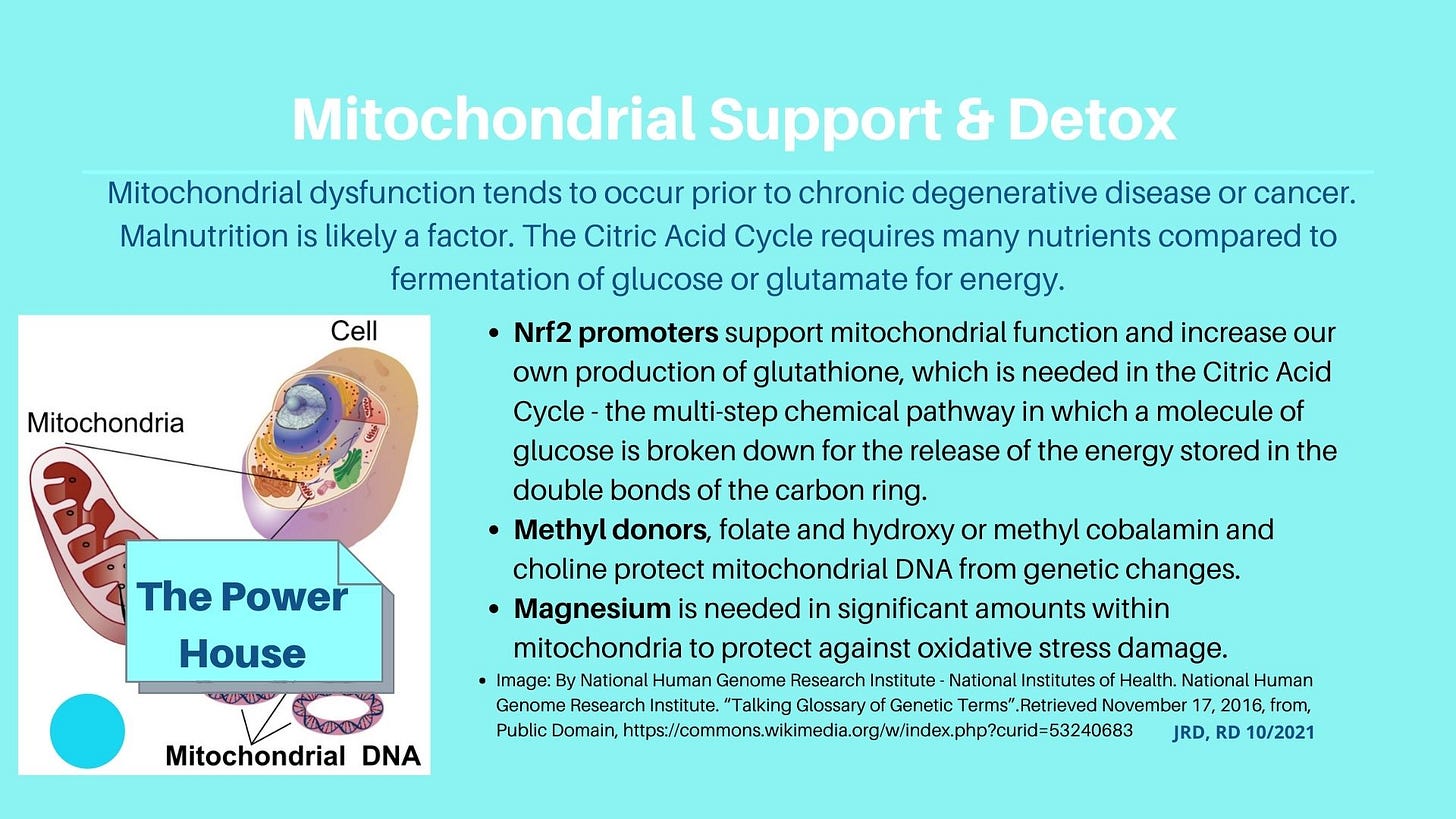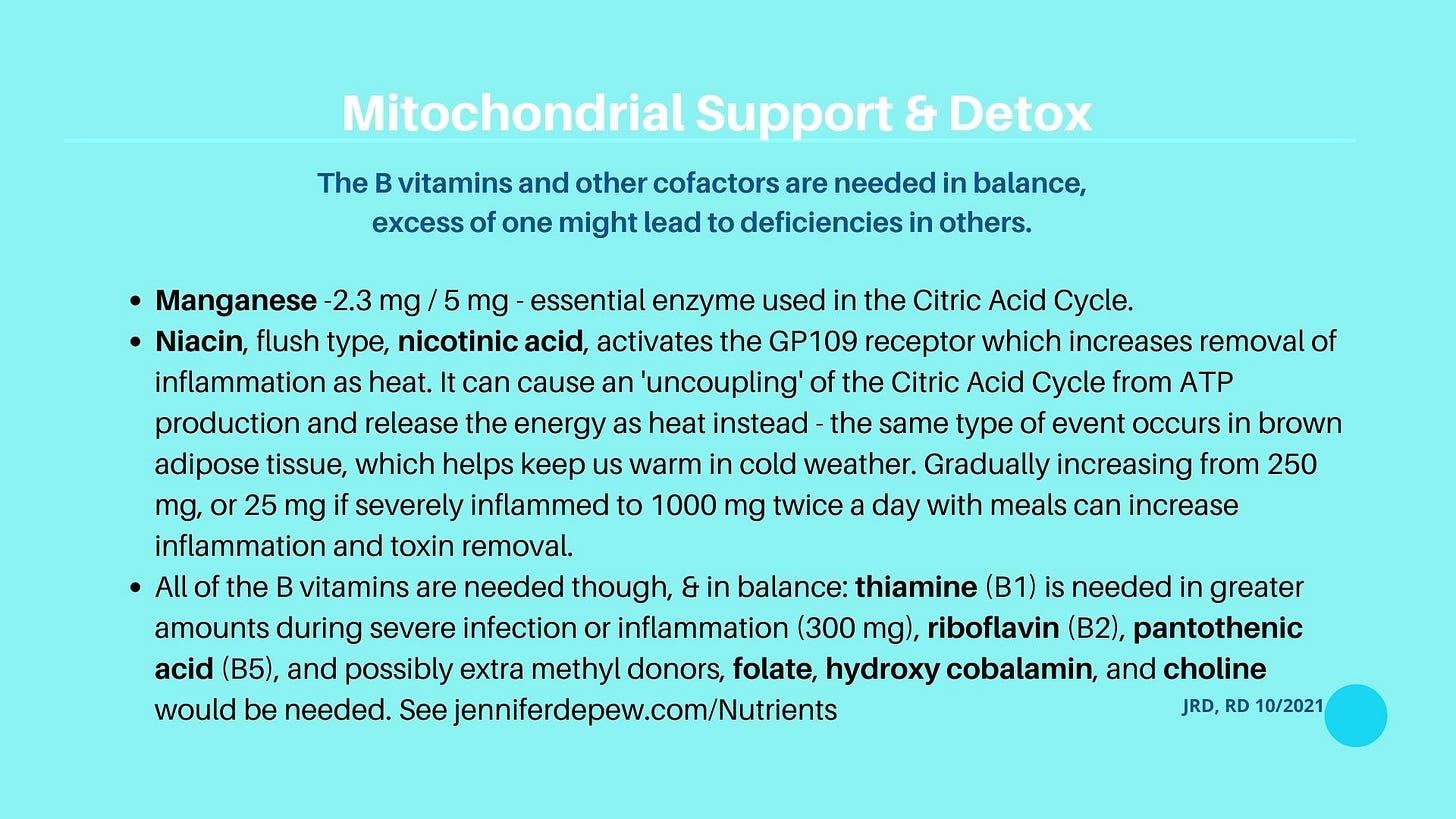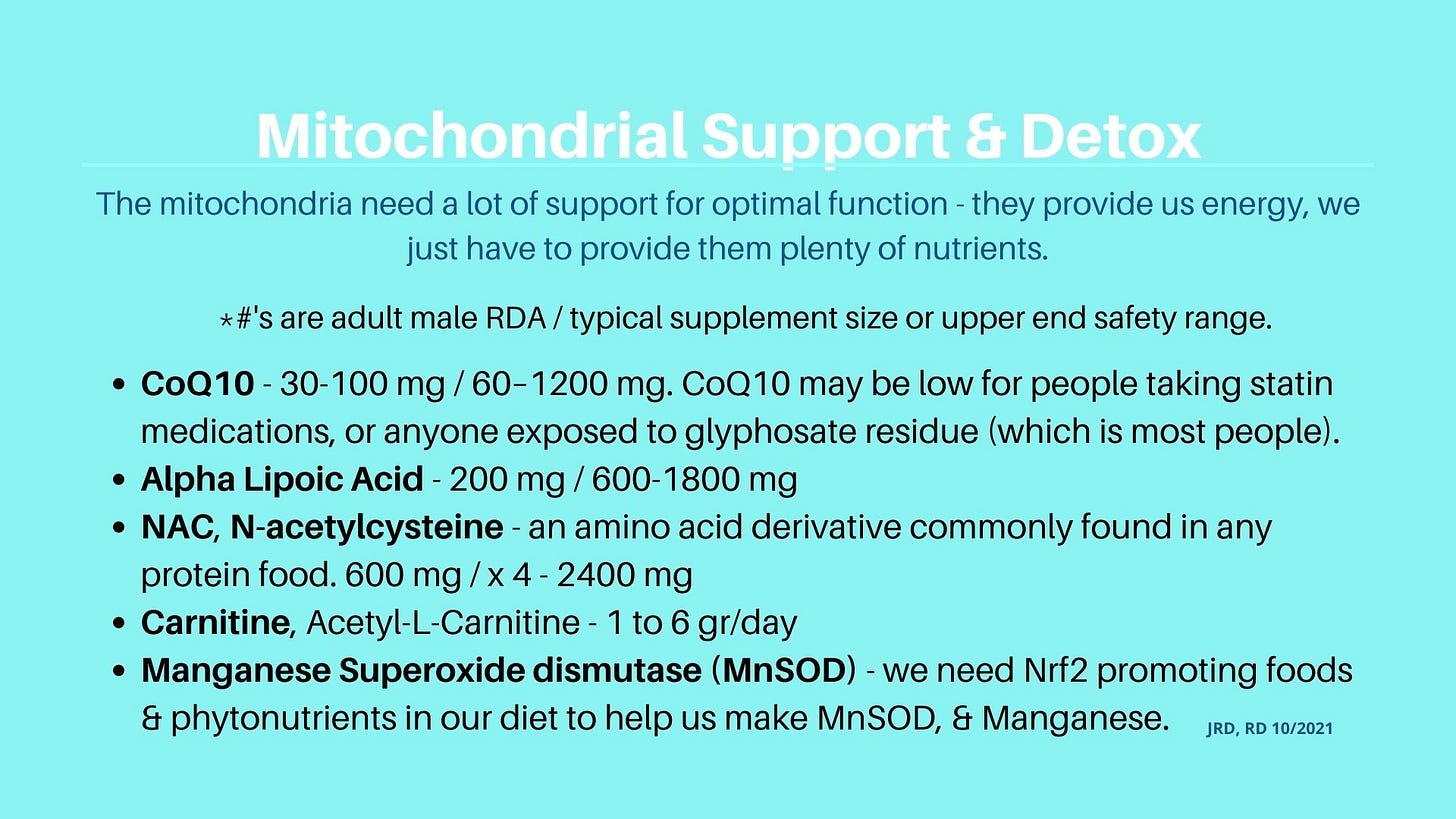PCOS and Mitochondrial dysfunction; also an Agilent Whitepaper about detecting mitochondrial toxicity for drug safety.
PCOS being aided by iodine and low carb diets brought mitochondrial to my mind and emails brought me notice of a new method to test drugs before they reach consumers, for mitochondrial toxicity risk.
Many chronic conditions involve mitochondrial dysfunction including cancer. Including, PCOS, which seems to involve functional changes in mitochondrial DNA - ie the mitochondria are malfunctioning because they make dysfunctional proteins. (1)
Drugs have been pulled from the market after reaching consumers when it was found too many people were developing mitochondrial dysfunction. The Agilent company’s product, Agilent Seahorse XF Solution, involves measuring the oxidation capacity of mitochondria. It can also detect uncoupling from the ATP generation steps - which would be interesting to test niacin with, just to see it happening. *I do not think seahorses are part of the biotech, it seems a brand name - but something with living mitochondria seems to be needed for the analysis to work.
Regarding PCOS and mitochondrial DNA differences - Abstract
Polycystic ovary syndrome (PCOS) is one of the most common female reproductive metabolisms. It is an endocrine disease that affects reproductive women and often exhibits with hyperandrogenemia, insulin resistance (IR), low inflammation, and an increased risk of type 2 diabetes mellitus, metabolic syndrome, and cardiovascular events such as hypertension and dyslipidemia in patients. However, the molecular mechanism of PCOS is still unclear. Recently, an increasing number of studies have shown that the oxidative stress induced by mitochondrial dysfunction has negative effects on IR, lipid metabolism, and follicular development, suggesting that mitochondrial dysfunction plays an essential role in the development of PCOS. Abnormal mitochondrial DNA copy number in patients with PCOS, and mitochondrial gene mutations, has been the focus of research in recent years, and functional mitochondrial diseases have been gradually accepted as a related factor in PCOS. This review is intended to summarize and discuss previous and recent studies and findings on the connections between mitochondrial dysfunction and PCOS. (Zeng, et al, 2020) (1)
If the mitochondria are simply not working as well and producing too much oxidative waste, then eating more antioxidant rich foods would be important and ketone supplements for extra calories while on a low carbohydrate and low glutamate diet might help also. When mitochondria switch to fermentation they are burning sugar and glutamate without oxygen but the process is wasteful of the potential energy and produces more waste.
A ketogenic diet was found helpful in a small group clinical trial with women who were overweight and had PCOS. (2)
I may have been harsh* in my last post - or it may be deserved criticism - this information was easy for me to guess and then easy to find online - why didn’t the author of the MedPageToday article discover the underlying iodine deficiency thought to be involved in PCOS? (Last post) *I heavily edited that post to remove the harsh, it is now focused on PCOS.
Why was it easy for me to guess mitochondrial dysfunction was involved from two clues - iodine deficiency and needing a lower carb diet? Because somewhere early in my lengthy schizophrenia risk factor series I realized that mitochondrial support nutrients were all being found to help, so I started looking up all of them that I could think of. Iodine is critically involved in mitochondrial function in ways other than the Citric Acid Cycle. The Schizophrenia risk factor list - would likely be a helpful lit of nutrients for PCOS and many chronic conditions, especially when fatigue is a symptom. Overworked mitochondria are undersupplying the body with energy.
Why isn’t it easy for medical doctors to see solutions that don’t involve medication?
Iodine is never or rarely talked about for many conditions where it is critical, and magnesium is also rarely mentioned in medical literature in places where it plays critical roles. Think about this and think about our children who are growing up deficient before they are even born. Iodine deficiency during fetal development causes lasting changes. Supplementing with iodine after birth would help but could not correct some things. Any woman tends to become more and more deficient in iodine after each successive pregnancy or miscarriage.
~~~~~~~
For more information about the Agilent Seahorse XF Solution for detecting mitochondrial oxidation you can view the links I received or sign up with your own contact information.
Sign up with the company Technology Networks to receive more updates about Agilent’s products or to enquire about purchasing the Agilent Seahorse XF Solution:
For the Whitepaper - https://go.technologynetworks.com/principle-of-mitochondrial-toxicity-assessment
For the Infographic - includes a nice visual summary of ways mitochondria can be negatively affected. https://go.technologynetworks.com/mitochondrial-toxicity-in-drug-discovery
Or you can view these links:
Principle of Mitochondrial Toxicity Assessment Using Agilent Seahorse XF Solution, Whitepaper.
Mitochondrial Toxicity in Drug Discovery, Infographic.
Mitochondria are so important for our health that they got three slides in my presentation which can be viewed on transcendingsquare.com.
See pages Nutrients (jenniferdepew.com) and Cofactors (jenniferdepew.com) for more information and links to other sites.
Disclaimer: Opinions are my own and the information is provided for educational purposes within the guidelines of fair use. While I am a Registered Dietitian this information is not intended to provide individual health guidance. Please see a health professional for individual health care purposes.
Reference List
Zeng X, Huang Q, Long SL, Zhong Q, Mo Z. Mitochondrial Dysfunction in Polycystic Ovary Syndrome. DNA Cell Biol. 2020 Aug;39(8):1401-1409. doi: 10.1089/dna.2019.5172. Epub 2020 Feb 20. PMID: 32077751. https://pubmed.ncbi.nlm.nih.gov/32077751/
Paoli A, Mancin L, Giacona MC, Bianco A, Caprio M. Effects of a ketogenic diet in overweight women with polycystic ovary syndrome. J Transl Med. 2020 Feb 27;18(1):104. doi: 10.1186/s12967-020-02277-0. PMID: 32103756; PMCID: PMC7045520. https://pubmed.ncbi.nlm.nih.gov/32103756/





